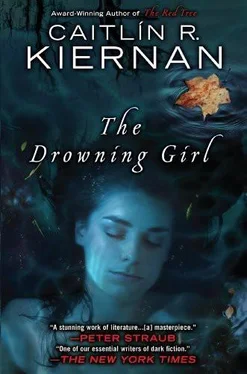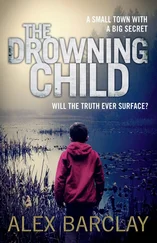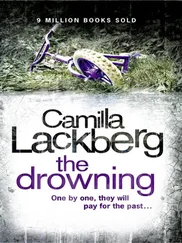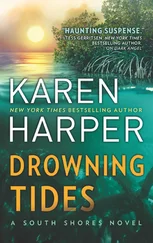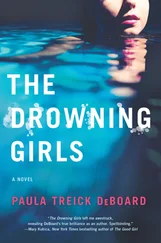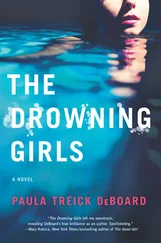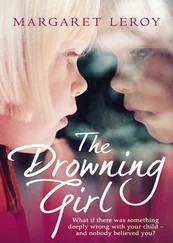Caitlín Kiernan - The Drowning Girl
Здесь есть возможность читать онлайн «Caitlín Kiernan - The Drowning Girl» весь текст электронной книги совершенно бесплатно (целиком полную версию без сокращений). В некоторых случаях можно слушать аудио, скачать через торрент в формате fb2 и присутствует краткое содержание. Год выпуска: 2012, ISBN: 2012, Издательство: Roc / New American Library, Жанр: Фэнтези, на английском языке. Описание произведения, (предисловие) а так же отзывы посетителей доступны на портале библиотеки ЛибКат.
- Название:The Drowning Girl
- Автор:
- Издательство:Roc / New American Library
- Жанр:
- Год:2012
- ISBN:978-0-451-46416-3
- Рейтинг книги:5 / 5. Голосов: 1
-
Избранное:Добавить в избранное
- Отзывы:
-
Ваша оценка:
- 100
- 1
- 2
- 3
- 4
- 5
The Drowning Girl: краткое содержание, описание и аннотация
Предлагаем к чтению аннотацию, описание, краткое содержание или предисловие (зависит от того, что написал сам автор книги «The Drowning Girl»). Если вы не нашли необходимую информацию о книге — напишите в комментариях, мы постараемся отыскать её.
The Drowning Girl — читать онлайн бесплатно полную книгу (весь текст) целиком
Ниже представлен текст книги, разбитый по страницам. Система сохранения места последней прочитанной страницы, позволяет с удобством читать онлайн бесплатно книгу «The Drowning Girl», без необходимости каждый раз заново искать на чём Вы остановились. Поставьте закладку, и сможете в любой момент перейти на страницу, на которой закончили чтение.
Интервал:
Закладка:
Imp types, “In ‘Werewolf Smile,’ you named yourself Winter.”
We’re sitting together in moonlight, and there are no lights on anywhere in the apartment. We’re sitting together in front of the turntable and speakers, and I’m playing one of Rosemary Anne’s records for Eva. She has told me she is always fascinated by the music she doesn’t make, the music of man, the music above the sea, the music of the world above, though she’s heard very little of it. So, I’m playing Dreamboat Annie for her, because I remember that’s the one that Abalyn liked the most. Eva listens, and occasionally says something. The music is loud (she wants it that way), but I have no trouble at all hearing her words clearly above the guitars, the drums, the pianos and synthesizers, and the vocals.
I’ve just asked her, again, what she meant that day in the museum about The Drowning Girl being her painting. One song ends, another begins, and finally she says, “You see it, and are obsessed with it. But haven’t you ever made it yours? Haven’t you ever found yourself within it?”
I admitted I’d not.
She kissed me, and the music faded. In a few moments, I found myself standing on the riverbank again. This time I was not Winterit was not winter, but late summer, and the trees were a riot of green. There was very little I could see that was not one or another hue of green. But I noticed at once that I could only see a few feet in any direction. I couldn’t see the sky, or very far along the bank to either side. I’d stepped into the cool, welcoming water, and when I look over my right shoulder, the space between the trees is impenetrable. There is above me no hint of the sky. It’s not that I can’t see the sky; it simply isn’t there. And I understand then that I am not actually back at the river. Eva has kissed me, alchemical kiss, and now I am in the painting. No, I am the painting.
I inspect everything more closely, and there is about every surface—the river, the forest, the bark of the trees, the underbrush between them, even my own skin—there is about it all the unmistakable texture of linen stretched and framed. And this is when I feel the camel’s hair brush and the oil paint dabbing tenderly, meticulously, at the space below my navel.
“You see?” Eva asks. And I am back with her in the moonlight. The record has ended, and the phonograph’s pickup arm has automatically lifted and returned to the armrest. “It’s as simple as that. Now it’s your painting, too. It’s only another way of singing.”
It was a while before the disorientation passed, and I could speak. I said, “I wish there were something I could give you. You’ve given me so much.”
She smiled, and kissed my cheek. “It’s coming, love,” she sighed. “Be patient. Soon enough now, it’s coming.”
As I’ve said above, there are countless other songs and stories Eva sang into me. Though, I see they’re all variations on a theme. At most, distinguished one from another by disparities that seem far less important, less profound, to me now than they must have seemed then.
“You’re a ghost,” Eva told herself.
And she sang into me for days and days, nights and nights, making of me the vessel of a ghost’s memories. She hid me, sequestered in her arms and my apartment, apart from all distraction, that I would have eyes and ears and touch and taste for her and her alone. I breathed her into me. I breathed in a ghost, insubstantial and ectoplasmic, a woman who believed herself a ghost, and a siren, and who was not a wolf and never had been. We spoke, somewhen in all that time, of Albert Perrault, and she said, “My mother…,” but then trailed off.
I wrote that I’d choose one story, and then another. But there are too many choices, and too little distinction. And I have. The girl standing at the riverbank, and then turning away. Not following the others into the river and so missing that chance forever. Not joining, so evermore apart. I can understand that. Caroline went in merciful hydrocarbon fumes, and Rosemary Anne, she’s gone, too, and I am alone, in an exile of my own choosing, or of my own fear. I could join them, and, yet, I can’t. I can’t follow. Eva can’t follow, but the sea has her heart and soul forever. “The Little Mermaid,” and never “Little Red Riding Hood.” Never Gévaudan. Always The Drowning Girl, and never Elizabeth Short. But I’m racing ahead of myself. Stop. Retrace your steps, Imp.
Eva didn’t love me. I doubt she ever loved anyone. She loved the ocean. Trapped in a dark river in Massachusetts, she was only seeking her way home, the path flowing to the tide of a lover’s arms. In “Werewolf Smile,” I wrote of that fictionalized Eva, “…because I knew that she never loved any of them, any more than she loved me.”
I’ve told about the river in winter, and becoming the painting, but I’m not going to write down all those story-songs, the mutable, unchanging permutations: a child on a merry-go-round, spinning round and round while her mother watched, and never getting anywhere at all; an emaciated creature with golden eyes and needle teeth lying hungry and watchful in the mud at the bottom of the deep water in back of Rolling Dam; the wrecks of ship after ship, seventeenth-, eighteenth-, nineteenth-century drownings; a beach leading down to the submarine Monterey Canyon, ninety-five miles long and out of soundings, almost twelve hundred feet deep; a beautiful, charismatic woman with an ancient idol of a god-thing she called Mother Hydra; an intricate mandala on the floor of a temple that had once been a warehouse, and the supplicants praying there for deliverance from terrestrial damnation; Phillip George Saltonstall climbing into the saddle; the rape of my mother by a man I have called Father; all those men and women marching into the sea; the hand of hurricane demons. See, Imp, they’re all the same story, seen through the eyes of the ghost whom they haunt, and that ghost is Eva, and that ghost is me.
She showed me the face I needed to see, and that she needed me to see, to complete a circuit. It would end her haunting, even as it made mine worse. I couldn’t have known this at the time, lost in her and off my meds.
There are no monsters. No werewolves. No sirens.
But she showed me her truest face, and it hardly matters whether it was ever factual.
The Siren of Millville writhed in her variegated coils upon my bed, the murdered, transformed soul of Perishable Shippen, who had surely perished, true to her name, even if she’d never existed. Eva writhed in the vermiform coils of eels and sea snakes, hagfish and lamprey. She fastened that ravenous, barbeled mouth about the folds of my labia, rasping teeth working at my clit. She writhed and coiled about me, wrapping me in a smothering, protective cocoon of slime, thick translucent mucus exuded from unseen glands or pores. Across her rib cage were drawn the gill slits of a shark, a deep row of four crimson slashes on either side of her torso, out of water and gasping, opening and closing, breathless but undying. Her breasts had vanished, leaving her chest flat except for those gills. I gazed into black eyes, eyes that were only black and nothing more, and they gazed into me.
She flowered, and bled me dry.
She took my voice, and filled me with song.
Unloving, she left me no choice but to love her.
Where there had been clean cotton sheets, there was a blanket of polyps, a hundred different species of sea anemones, the stinging embrace of their stinging tentacles planted there to keep us safe. We were immune to their neurotoxins, I understood instinctively, like the tiny clownfish that nest within anemones to escape the jaws of bigger fish are immune. To my eyes, the anemones were no different from a field of wildflowers. She flowered. And there were minute blue-ringed octopuses and sea snakes, nestled between those flowers, each sparing us its fatal bite. She called them all with melodies no mortal woman’s throat may ever replicate. Crabs scuttled across my belly, and a razor rash of barnacles flecked my arms and legs. I questioned none of this. It was. It simply was. The room was filled with the darting, sinuous shadows of fish.
Читать дальшеИнтервал:
Закладка:
Похожие книги на «The Drowning Girl»
Представляем Вашему вниманию похожие книги на «The Drowning Girl» списком для выбора. Мы отобрали схожую по названию и смыслу литературу в надежде предоставить читателям больше вариантов отыскать новые, интересные, ещё непрочитанные произведения.
Обсуждение, отзывы о книге «The Drowning Girl» и просто собственные мнения читателей. Оставьте ваши комментарии, напишите, что Вы думаете о произведении, его смысле или главных героях. Укажите что конкретно понравилось, а что нет, и почему Вы так считаете.
